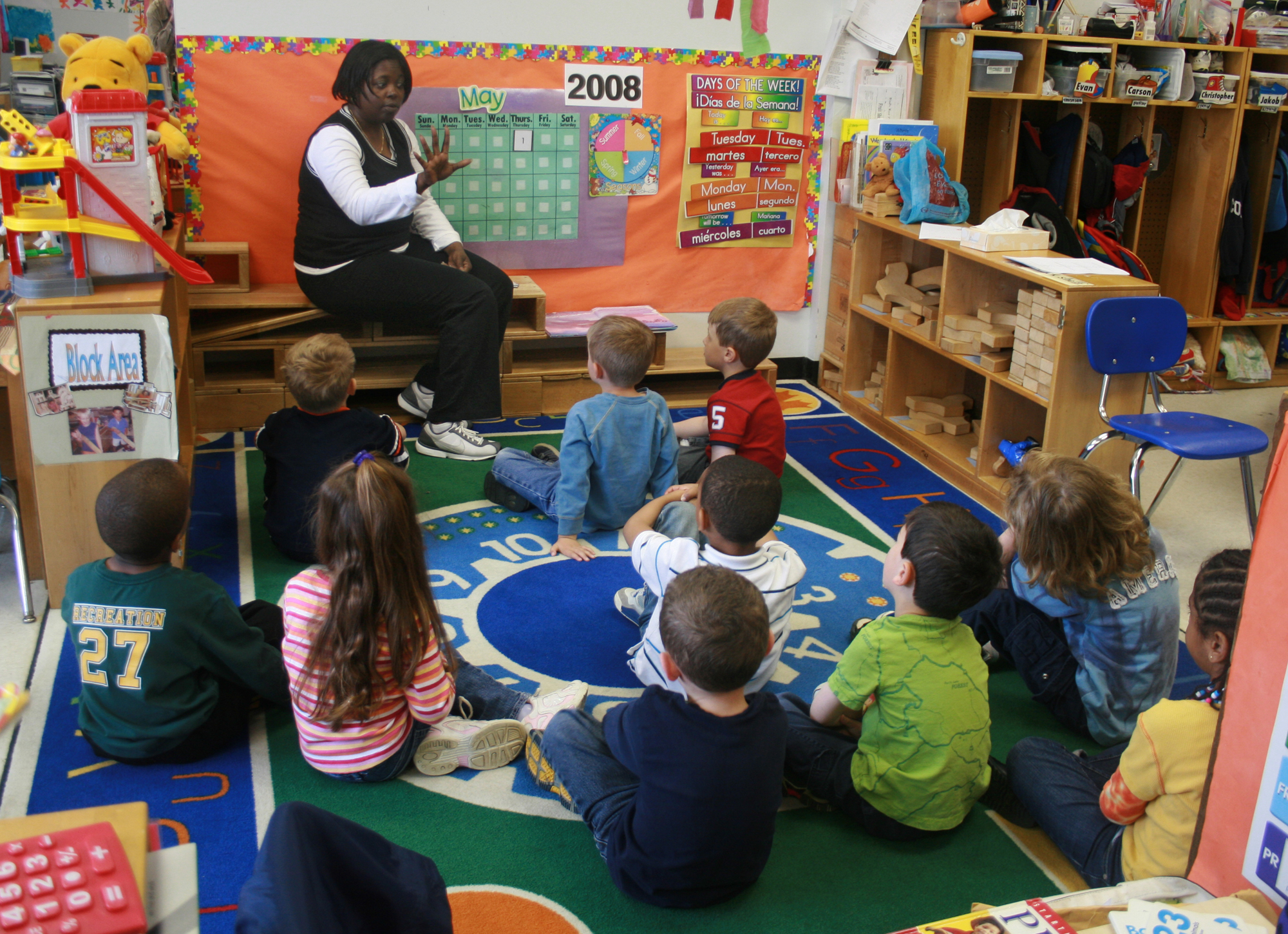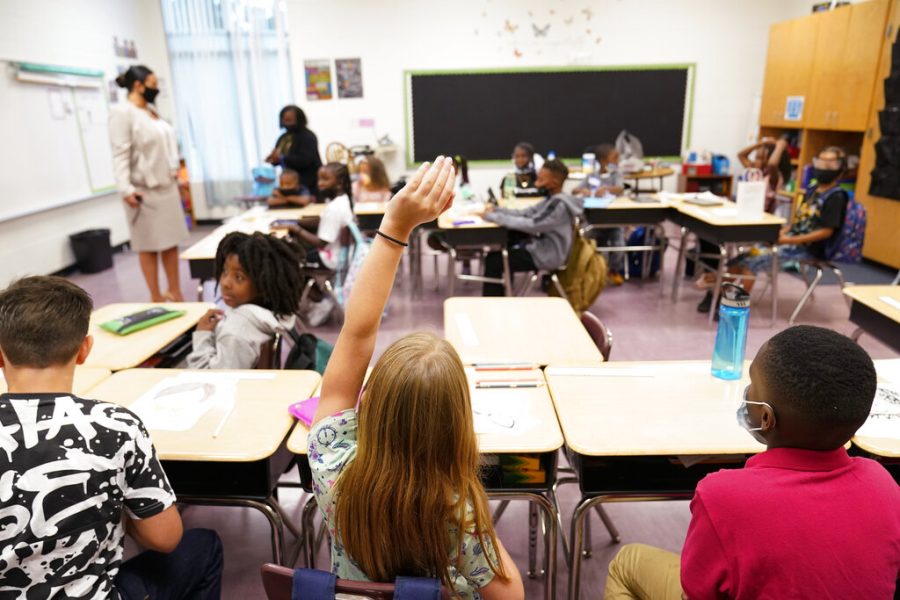Just How You Can Help Save Temecula Schools for Future Generations
Just How You Can Help Save Temecula Schools for Future Generations
Blog Article
The Effect of Institution Environments on Academic Success and Personal Health
The institution environment dramatically affects both academic success and personal health, including components such as physical layout, class atmosphere, and social characteristics. The style of instructional areas, including natural lights and ergonomic furniture, can enhance students' focus and convenience. The top quality of teacher-student connections and the nature of peer interactions play critical duties in promoting an environment helpful to learning and psychological support. Understanding how these various variables interplay to shape trainee results increases vital inquiries concerning maximizing academic setups for all natural advancement. How can colleges strategically boost these elements to much better support their students?
Physical Format and Style
How does the physical design and style of a college effect scholastic success? The plan and aesthetic of a college environment can dramatically affect pupils' learning end results. A well-designed institution layout promotes simplicity of motion, reduces diversions, and promotes a sense of safety and belonging. Vast hallways and clearly marked areas help with smooth transitions in between classes, decreasing lateness and disruption. In addition, tactically positioned typical locations motivate social communications, which are important for psychological and social growth.
All-natural lights and efficient ventilation systems are crucial in improving cognitive function and reducing absenteeism. Researches have shown that class with sufficient natural light improve student focus and decrease feelings of drowsiness. In addition, ergonomic furniture customized to trainees' requirements can prevent physical pain, enabling long term focus and engagement in scholastic tasks.
Access to outdoor areas and visually pleasing surroundings additionally play a critical duty - Save Temecula Schools. Environment-friendly areas and well-kept college grounds provide chances for workout and mental relaxation, both of which are important for preserving high levels of scholastic efficiency. Essentially, an attentively created physical setting can function as a stimulant for academic quality, fostering an atmosphere that sustains both teaching and learning
Classroom Environment
A positive classroom ambience is essential to attaining academic success. An environment that cultivates a feeling of security, inclusivity, and common regard motivates students to engage more actively in their understanding procedures. The ambiance of a classroom, consisting of elements such as lights, noise degrees, and seating arrangements, can significantly influence trainee focus and inspiration. A well-ventilated, well-lit classroom with very little distractions can enhance cognitive function and reduce tension, thus promoting much better scholastic outcomes.
Furthermore, the classroom ambience ought to sustain a society of partnership and open communication. They are a lot more likely to involve deeply with the material and develop essential thinking skills when trainees feel comfy expressing their concepts and asking questions. Peer interactions and group activities can enhance knowing by offering diverse point of views and promoting team effort
Moreover, developing constant regimens and clear expectations can develop an organized environment that enables students to concentrate on their research studies. By lessening unpredictability and providing a foreseeable framework, students can much better handle their time and duties. Ultimately, a favorable classroom atmosphere not only enhances scholastic performance more helpful hints however likewise adds to the total health of trainees, preparing them for future instructional and individual endeavors.
Teacher-Student Relationships
Building on the importance of a favorable classroom ambience, the partnerships between trainees and teachers play a crucial duty in forming academic success. A healthy teacher-student connection cultivates a discovering atmosphere where students feel valued, recognized, and supported, which significantly enhances their inspiration and interaction. When students view their teachers as understanding and friendly, they are most likely to participate actively in course and look for help when needed, adding to a much deeper understanding of the subject.

Effective interaction is essential to supporting these partnerships. Educators that use open, considerate, and consistent interaction develop a foundation of count on. This depend on allows trainees to express their problems and concepts freely, cultivating a joint understanding setting. In significance, strong teacher-student connections are a foundation of instructional success, playing a vital duty in both academic achievement and personal development.
Peer Interactions
Peer communications substantially affect academic success by forming a student's cognitive and social growth. Positive peer communications can improve a pupil's motivation and interaction in academic tasks via joint understanding and common assistance.

Efficient peer interactions additionally contribute to the growth of important life abilities, such as interaction, conflict, and teamwork resolution. These social competencies are crucial for both scholastic success and individual wellness, emphasizing the value of promoting favorable peer characteristics within the school environment.
Extracurricular Tasks
Participating in extracurricular tasks plays a crucial duty in a trainee's scholastic read this post here success and personal growth. These tasks, ranging from sports groups to dispute clubs, offer trainees opportunities to develop beneficial abilities such as management, time monitoring, and teamwork. Research that site study regularly shows that pupils that participate in after-school activities often tend to attain higher scholastic efficiency. This relationship is usually credited to the structured environment and the technique called for to balance both academic and extracurricular dedications.
Furthermore, extracurricular involvement cultivates a sense of belonging and area, which is important for individual health. Taking part in group activities enables pupils to construct and strengthen social networks, boosting their social and psychological knowledge. These communications are crucial for creating social abilities that are helpful in both academic and future professional environments.
In addition, extracurricular activities provide a constructive electrical outlet for pupils to discover their interests and enthusiasms beyond the typical educational program. This expedition can result in the exploration of brand-new talents and prospective career paths, even more inspiring students to involve more deeply in their academic job. Finally, the duty of extracurricular activities expands beyond simple entertainment; they are indispensable to cultivating a holistic academic experience that promotes both scholastic success and personal development.
Conclusion
In sum, the impact of school settings on both scholastic success and individual health is profound. Attentively created physical designs and class, along with positive teacher-student relationships and constructive peer communications, dramatically enhance trainee inspiration and engagement. In addition, the presence of helpful teachers can reduce stress, fostering a nurturing ambience conducive to holistic advancement. These elements jointly highlight the importance of creating and keeping optimum school settings for the advantage of trainees' scholastic and personal development.
Eventually, a favorable class ambience not only improves scholastic efficiency yet also contributes to the general health of students, preparing them for future educational and personal undertakings.

Report this page